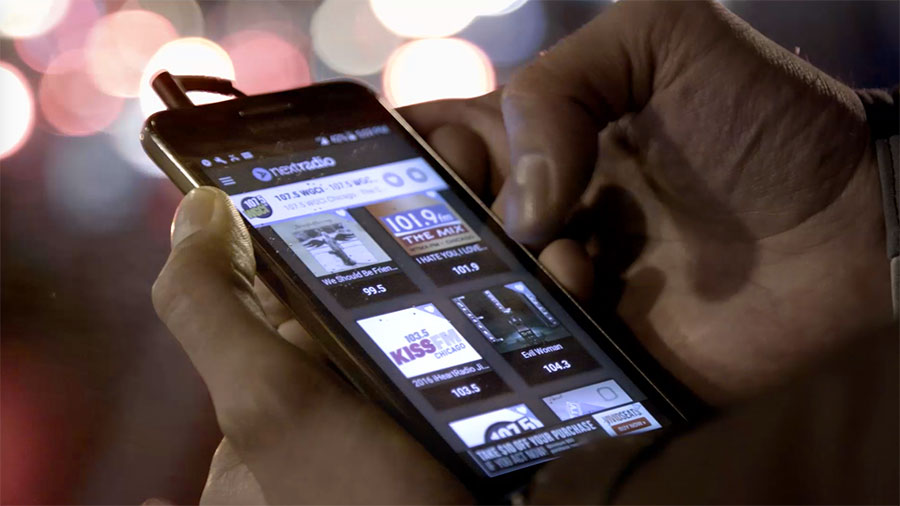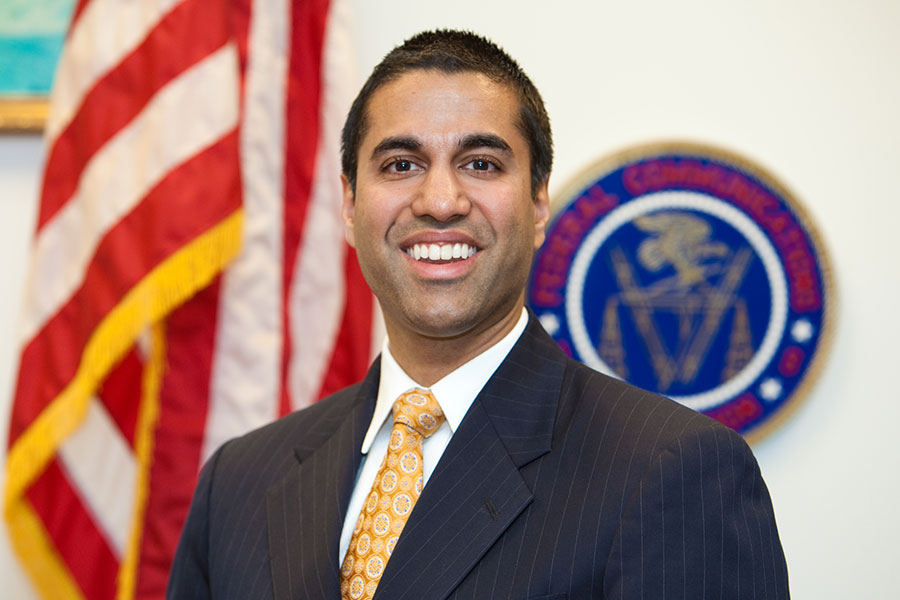FCC Chairman Ajit Pai addressed the North American Broadcasters Association regarding the disabled FM chips that come with pretty much every smartphone on the market.
According to Pai, only 44 percent of smartphones have an activated FM chip, which when disabled forces the user to rely on Internet-based streaming services to listen to music and radio.

Although he does not support the government enforcing the activation of the FM chip, Pai expects that his remarks alongside future regulations will reshape how Americans get their information, seeing that Republican senators intend on introducing a law to force Internet Service Providers to provide information about their customers.
“Radio is vital. When disaster strikes, often knocking out cell networks and Internet service, over-the-air radio is a lifeline, providing the latest weather forecasts or directions on where to seek shelter or relief assistance. After hurricanes or tornadoes or fires or floods, time and again, we see an exponential surge in radio audiences,” stated Pai at the Future of Radio and Audio symposium.
Radio is still one of the most used communication methods
Starting the conference, Pai addressed the attendees from Mexico, Canada, and the U.S. He stated that 9 out of every 10 Americans younger than 50 have a smartphone is able to connect to a cloud of information and services incomparable to any other service. On the other hand, 93 percent of Americans older than 12 listen to the radio, which is pretty much the same rate to that of many decades ago, hearing an average of 12 hours per week.
Pai noted that it was in 1981 when MTV aired “Video Killed the Radio Star,” stating that MTV has not played music videos in years, while almost every American adult still listens to the radio. He stressed that radio is “steady-as-a-rock” and perhaps it will keep being a vital medium of communication due to it harnessing the three main forces of success in the digital landscape, which would be “social, local, and mobile,” according to John Doerr.
It seems that radio does add up these three forces, seeing that it can serve as a meeting point for communities, allowing people to express their opinion and beliefs without complex barriers. Radio hosts connect with their audience and they always get in contact to share experiences and create discussions.
“Long before people were arguing about the issues of the day on Facebook or Twitter, they were fighting it out on radio stations across the country. And they still are, each and every day,” Pai told the audience.
Regarding the local aspect of radio, it is obvious that local radio stations tie communities together and offer a place for ideas and opinion to take the spotlight. Local radio stations report on situations and happenings occurring in communities, just like state football championships and smaller events that are of importance for the nearby townsfolk. Pai commented that many people including himself use mobile app radio to tune to local FM stations.
Lastly, the mobile aspect of radio is also worth of mentioning, seeing that it can be enjoyed at any place while the receptor is within the signal range.

The government, the radio, and the internet
FM chips are activated in 44 percent of the U.S.’s top-selling smartphones, while that rate is 80 percent in Mexico. FM radio could also be taken as a primary medium of information seeing that it uses “one-sixth of the battery life and less data” compared to standard Internet-based services.
“I cannot support a government mandate requiring activation of these chips. I don’t believe the FCC has the power to issue a mandate like that, and more generally I believe it’s best to sort this issue out in the marketplace,” stated Pai regarding enforcing the activation of the chip.
Ajit Pai was recently appointed by Trump, seems to be for widening the possibilities of communication, Republican Senator Jeff Flake of Arizona revealed that they would soon introduce a resolution that would erase the limits of what Internet Service Providers (ISPs) can do with customer data without authorization.
The idea falls onto the net neutrality debate, where opponents want ISPs to yield data about consumers so content providers can craft their trade, based on consumption plans, preferential treatment and on how people use the Internet.
The first step would have ISPs having to reveal whenever “sensitive information” is being transmitted through the Internet. This would include the user’s data on finances, health, precise location, app usage history, and browsing history. Anything that’s non-sensitive could be then made accessible through the ISP.
Pai is a fierce opponent to net neutrality, he and his supporters argue that they are not intending to eliminate the state of net neutrality, but rather imposing it as it should have existed in the first place. They argue that new regulations would create a different digital ecosystem where new services and content providers would end up in higher-quality content and information.
They argue that new rules would create a different digital ecosystem where new services and content providers would end up in higher-quality content and information.
Source. FCC

“Republican Senator Jeff Flake of Arizona revealed that they would soon introduce a resolution that would erase the limits of what Internet Service Providers (ISPs) can do with customer data without authorization.” How about Mr. Flake phone number and address get published so everybody contact him personally.
Not many people use windows phone but I am one. I had radio on my windows 8.1 Lumina phone but when it updated to windows10 the FM radio was gone.